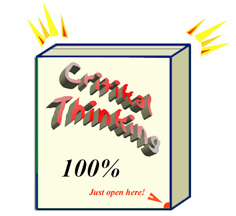Teaching
Science and technology have revolutionized the way that people live. While technology has, for the most part, been embraced globally (think of any number of examples: >7 billion mobile phone users, >200 million users of chatGPT, pharmaceuticals, ...) most people still find science inaccessible and daunting. Why is there such a difference when science and technology are two sides of the same coin? Perhaps because people see the relevance of technology to their lives while science remains largely isolated in universities, labs, and other areas out of sight from the public domain? Technology has been sold to the public, science generally has not? In fact, in contrast to the marketing in favor of technology, anti-science rhetoric appears to be trending (e.g. anti-evolution, anti-climate change, ...).
While the anti-science critique is a broad societal issue, the principal marketplace for science remains in school, college, and university. Education is the advertising, and the university's living-learning-lab environment is the first 'wire-cutter' testbed of scientific skills. If the students don't see a product they like, that is meaningful, it will never be bought. If it isn't bought, it will not be used; if it isn't used, it will go to waste. It is the responsibility of scientists and educators to provide people from all walks of life (including other scientists and educators) with lessons that are useful to them. This means spending time designing a range of products for different target groups, trying them out, getting feedback, modifying them, and trying again. This does not mean that students will necessarily get everything that they want (grade inflation is already a substantial problem nationally), but it does mean they will get something that is interesting and useful, that they want to have and use, for a lifetime. And once practiced, the behavior learned, the 'software' in place, free upgrades are available on the internet and TV, in books and magazines, at the local museum, national park, and zoo (to name but a few).
Science is the conceptual framework for and provides the means to understand the world, including but not limited to technology. It provides a tool—critical thinking—as powerful and versatile as any sold as technology. It is real intelligence, not just the artificial stuff. It can help you shop, vote, fix a car, cook the greatest dinner, surf better, get a date (well, ok, maybe just perhaps), and much much more. When it provides this much, investing in science is one investment that will always generate high returns.
For courses taught and outreach, please see CV.
